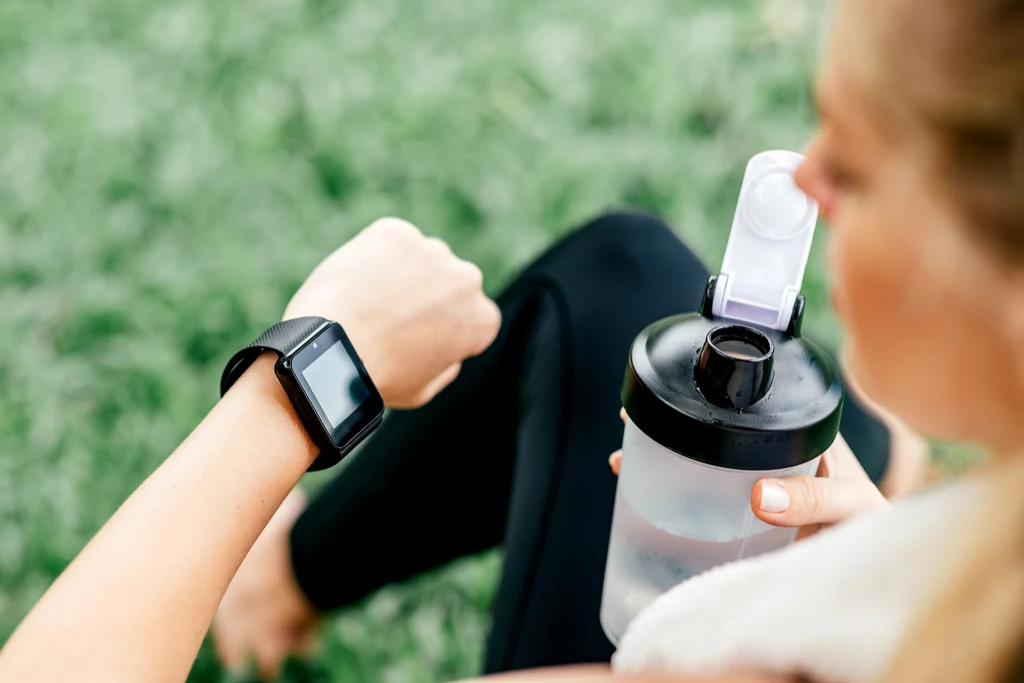Everything You Need To Know About Pre-Workout

July 4, 2022 - Updated July 4, 2022

Who else agrees that one of the hardest parts of any workout is simply getting started? Revving yourself up to put on your activewear or getting yourself to the gym can often feel more challenging than the workout itself, especially if your energy or motivation is low.
Something you may have seen people talking about to improve their energy and performance is pre-workout. Similar to protein powder, there are many different brands, ingredient formulations and flavours. But what does it actually do, what do all those weird ingredient names mean, and do you really need it?
What is pre-workout?
Pre-workout is a type of supplement that is designed and claims to give you extra energy and enhance your athletic performance, as well as helping with muscle recovery and fatigue.
It can come in the form of a powder you mix with water, a pill, chewable gummies, or canned drinks. “Pre-workout” doesn’t refer to one ingredient or nutrient - it’s a combination of ingredients.

What is pre-workout made of?
Different products and brands contain different ingredients and formulations, but there are some common ingredients.
The main ingredient is often caffeine, ranging from around 150-300 mg per serving which equates to between one and three cups of coffee.
For perspective, the FDA recommends consuming no more than 400 mg of caffeine per day, or 200 mg for pregnant or breastfeeding women.
Some other common pre-workout ingredients and their intended health benefits include:
Carbohydrates: For increased energy.
Arginine: This is meant to relax your blood vessels and improve blood flow.
Beta-alanine: This is meant to help you perform high-intensity exercise and reduce your fatigue. Some people experience tingling sensations from this ingredient.
Creatine: This can help give your muscles energy, which can help you gain strength and muscle mass when combined with a resistance training program.
Nitrate: This is meant to help with increasing the intensity and duration of your workouts.
Citrulline: This is meant to increase blood flow and the removal of lactic acid.
BCAAs: This stands for branched-chain amino acids. Amino acids are the building blocks of protein and are to help with energy, building muscle and improving your recovery.
B vitamins: These are meant to help with energy.
Artificial sweeteners or sugar alcohols
Artificial colours
Artificial flavours

Is it safe? What does the science say?
Unfortunately, pre-workout supplements are not regulated or required to be tested for safety. This doesn’t necessarily mean they are dangerous or unsafe, but 2019 research explains that it means there are many formulas with different ingredient quantities (and qualities!), which can make it hard to know what you are putting into your body, how your body will react, and if it’s even worth the expense.
According to a 2018 review, there is a significant body of evidence suggesting that consuming these types of supplements before exercise may influence muscular endurance and mood in a positive way, though there have been mixed results in regards to effects on muscle force and power. Consumption does seem to be relatively safe, but it’s worth noting that most studies have run for less than eight weeks, so the long-term effects are unclear.
Research from 2019 looking at the relationship between exercise and caffeine highlighted several studies which have shown improved performance, but also the possibility of heightened anxiety and impaired sleep, which is essential for recovery and overall wellbeing.
A similar review from 2019 with similar findings pointed out that more research needs to be conducted on women, middle-aged people and older adults.
A number of potential health benefits have been reported from creatine supplementation, as highlighted in 2017 research, and BCAAs have been shown to help increase muscle growth and decrease soreness, but they are naturally found in whole foods, so supplementation isn’t necessary if you are eating enough protein.
A lot of research on pre-workout supplements has also been conducted on men, so it’s hard to draw conclusions about its effects on women. Due to changes in physiology and your menstrual cycle, how your body metabolises these products could be very different.
Top tip: When taking any workout supplements, do your research and look for products that have been tested for safety by a third party such as NFS (National Food Safety).

When should you take pre-workout?
Here at Sweat, we will always advocate getting your energy and nutrition through whole foods, hydration and sleep, however, we also know some people take supplements or may try them during their unique health and fitness journey.
If you’re going to try a pre-workout supplement, it’s generally best to take it 30-60 minutes before a tough training session to allow time for it to be absorbed. If you take it too close to your workout, you’re more likely to notice the effects when you’re cooling down - not ideal! And remember: you definitely don’t need these supplements for low-intensity workouts.
How long does pre-workout last?
Most people feel the effects of pre-workout for about an hour or so (more than enough time to get a great workout in), but it’s important to remember it can stay in your system for 4-6 hours and everyone’s body will respond differently.
If you are sensitive to caffeine or find it messes with your sleep patterns, it’s best to avoid pre-workout supplements or only have them at times of the day when you know your sleep won’t be impaired later on.

Do pre-workout supplements have side effects?
Although there isn’t any research to point to any significant dangers of these supplements when taken in correct doses, more research is still needed and it’s important to recognise they can affect people in different ways.
You might even find your body reacts differently to individual products, due to their varying formulations.
As mentioned, most of the research has only been conducted on men, so it’s hard to draw any solid conclusions about how these supplements affect women.
Due to the high caffeine content, you may experience an elevated heart rate, difficulty sleeping, increased anxiety, feeling jittery or headaches (none of which are ideal for a good workout).
If you’re already having other sources of caffeine in your day such as coffee, tea or energy drinks, be mindful of how much caffeine you are consuming in a day.
Some other pre-workout ingredients can leave people with digestive discomfort, tingling sensations, gas, bloating or diarrhoea.
Top tips:
Always check with your doctor before taking any new supplements, especially if you have any health conditions or are taking other medication or supplements.
If you do try pre-workout supplements, start with an amount smaller than the recommended serving to see how you feel - especially if you’re sensitive to caffeine.
Never take more than the recommended serving.
Do you need pre-workout? What do the Sweat Trainers do?
Nope, you definitely don’t need pre-workout, and yes, there are alternatives if you need an energy boost!
Head Trainer Kayla Itsines will have a cup of coffee, Chontel Duncan sometimes uses supplements for energy and recovery, and Cass Olholm is also a fan of pre-workout black coffee for the caffeine benefits (or a light snack!).
If you’re considering pre-workout supplements because you find it hard to get through your workouts or you’re low in energy, it’s best to look at your overall lifestyle first.
Are you getting enough sleep and prioritising your rest days, drinking enough water, and eating meals that are both nutritious and provide enough energy for your training? Nail the basics before you think about supplementing.
Have a meal 2-3 hours before your workout, or snack 30 minutes before for a boost of energy. A banana or a piece of toast is a great option, and if you want the added caffeine, try adding a cup of coffee and see how you feel.
Pre-workout nutrition can take some trial and error to find what makes you feel your best during your Sweat sessions, so let your body be your guide to discover your ideal workout fuel.

A more empowered you starts with Sweat, and our editorial team is here to bring you the latest fitness tips, trainer recommendations, wellbeing news, nutritional advice, nourishing recipes and free workouts.
* Disclaimer: This blog post is not intended to replace the advice of a medical professional. The above information should not be used to diagnose, treat, or prevent any disease or medical condition. Please consult your doctor before making any changes to your diet, sleep methods, daily activity, or fitness routine. Sweat assumes no responsibility for any personal injury or damage sustained by any recommendations, opinions, or advice given in this article.
Fitness